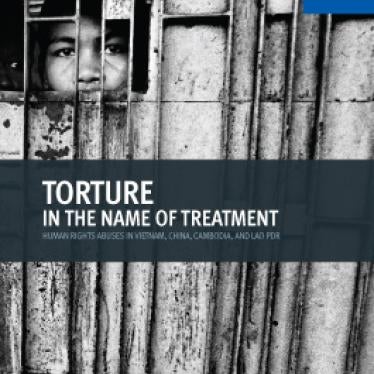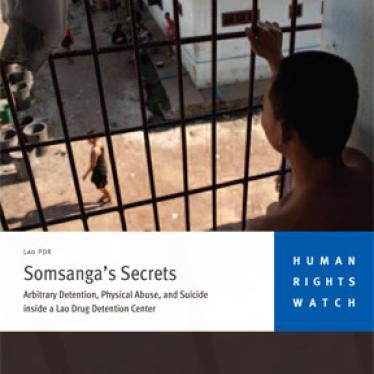Today’s Laos has a communist government that institutes free market reforms and advertises itself as a haven for backpacking tourists. It recently opened its own stock market. For many Americans, especially, Laos still evokes images of the ‘secret war’ fought on the sidelines of the Vietnam war. But even those familiar with modern Laos may not know much about another secret war, this time on the sidelines of the international war on drugs. In a strange realignment of forces, the United States is very much involved, this time on the same side as the government party it once fought against.
The government of the Lao People’s Democratic Republic says it intends to make the country ‘drug free’ by 2015, part of a regional effort by Southeast Asian countries supported by the UN Office on Drugs and Crime. Laos takes its ‘war on drugs’ commitment particularly seriously. The government-controlled media avidly track the progress of villages to become ‘drug-free.’ Village militia members detain drug users, while relatives are encouraged to report on family members who use drugs.
As is true elsewhere in the region, those identified as drug users are locked up in the name of ‘treatment.’ Over the past year, Human Rights Watch has investigated a drug treatment centre in Vientiane called Somsanga. International donors depict Somsanga as a ‘health-oriented’ facility. The truth, we found, is quite different.
Since at least 2002, the international donors have supported the centre by constructing or refurbishing buildings, training centre staff, and providing some vocational training. UNODC has overseen much of this support, with financial backing primarily from the US government. A handful of other embassies in Vientiane and external organizations have also been involved.
Our investigation found that most of those detained in Somsanga are locked in cells inside barbed wire compounds. They may be confined for three months, but some stay longer than a year. They spend the majority of the day in their cells, closely watched by police and guards to prevent escape attempts. It’s an abusive place: those who do try to escape may be brutally beaten, while some detainees resort to suicide.
There’s no clear legal basis for holding people in Somsanga. Former detainees who talked to Human Rights Watch explained that they were sent to the centre without a formal legal hearing or trial, and without ever having seen a lawyer or judge. They said that they were unaware of any means to review or appeal the decision to detain them. Once inside Somsanga, they were not free to leave.
People don’t have to be dependent on drugs to be locked up. Some who use drugs infrequently are also there, though they have no dependence problem that might require ‘treatment.’ Beggars, homeless people, street children and those with mental disabilities are also swept away into Somsanga, especially before national holidays and international events.
Even today, much of what actually happens inside the Lao People’s Democratic Republic remains a secret. The government completely controls local media and forbids public criticism. The government doesn’t allow international human rights organizations to conduct research or monitor human rights.
What happens in Somsanga itself also remains a secret, in part because of its international supporters. Human Rights Watch wrote to Somsanga’s donors in July asking about the nature and extent of their support. Some donors—including the US Department of State’s International Narcotics and Law Enforcement Affairs (INL) and the US Embassy in Vientiane—still haven’t replied.
Donors who did reply —including UNODC— said they were not aware of any reports of human rights violations in Somsanga. While some abuses, such as beatings, can be hidden behind the walls, others, such as arbitrary detention, are out in the open. The Lao government media even published a national telephone hotline for the public to report beggars before the 2009 Southeast Asian games in Vientiane. The announcement explained that those picked up would be put in Somsanga.
The United Nations is committed to fighting poverty and upholding human rights across the globe. But in supporting Somsanga, the UN Office on Drugs and Crime is instead acquiescing to violations of human rights and supporting government campaigns that mistreat the poorest of the poor.
The so-called global war on drugs continues to rage around the world, with hundreds of thousands, if not millions, of people victimized, effectively ‘collateral damage.’ Countries often contend that health is at the centre of their drug policy, even when the mainstay of treatment is locking drug users behind bars.
In Laos, a secret war, funded by outsiders, promotes a goal as ideological as anti-communism. In the name of making the country ‘drug free’ by 2015, the government is sweeping people off the streets with little attention to its obligations to ensure due process or to fulfill the right to health. Instead of providing funding and looking the other way as these abuses occur, donors should demand that Somsanga be shut down, and replaced with effective, evidence-based voluntary drug treatment programmes, based in the community.
Joe Amon is director of the Health and Human Rights Division at Human Rights Watch.






